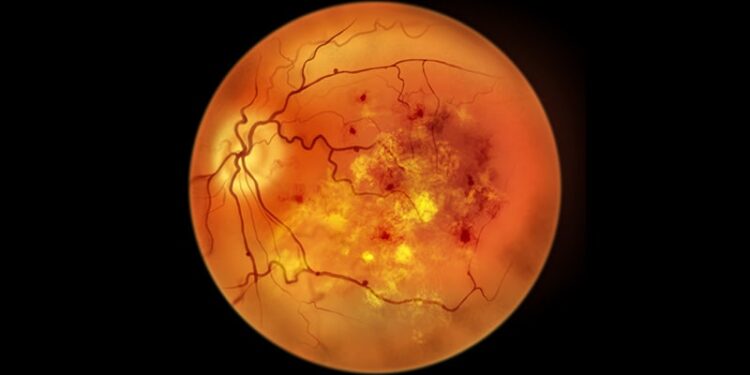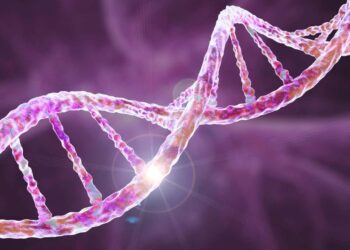The National Institute for Health and Care Excellence (NICE) has issued final draft guidance recommending idebenone (Raxone, Chiesi Pharmaceuticals) for treating visual impairment from Leber hereditary optic neuropathy (LHON) in people aged 12 years or older.
This is the first time that NICE has recommended a licensed medicine for use on the NHS in England to target the underlying causes of this genetic eye condition. Around 250 individuals in England may be eligible for treatment.
Rare Mitochondrial Disorder
LHON is a rare mitochondrial genetic disorder caused by a gene mutation that prevents retinal cells from producing enough energy to function normally. This leads to the dysfunction of retinal ganglion cells.
The condition typically begins with painless blurring of central vision, which can progress to bilateral blindness within months. It mainly affects boys and young men.
Until now, the standard of care was limited to supportive measures such as nutritional supplements, counselling, and lifestyle management, with no licensed medicines available to address the underlying pathophysiology of the disease.
How the Drug Works
Idebenone is a synthetic short-chain benzoquinone thought to restore the cells’ ability to produce energy. This may allow inactive retinal cells to function again and potentially improve vision.
NICE’s recommendation was based primarily on results from the RHODOS trial, which randomly assigned 85 patients aged 14 years or older to receive 900 mg/d of idebenone or placebo for 24 weeks.
At 6 months, idebenone produced clinically meaningful improvements in visual acuity, especially in patients with differing vision between eyes at baseline. Visual recovery occurred in 30% of treated patients compared with 10% in the placebo group. Improvements were seen as early as 1 month.
A follow-up observational study, RHODOS-OFU, found that improvements were largely maintained, even after idebenone treatment ended. Additional evidence came from the non-randomised long-term EAP, LEROS, and PAROS studies.
Safety and Availability
Idebenone was generally well tolerated, with adverse events occurring at similar rates to placebo. Reported side effects were typically mild and included headache, nasopharyngitis, and cough.
The drug will be available as 150 mg tablets. The recommended dose is two tablets taken three times a day with food.
Professor Patrick Yu-Wai-Man, a NICE committee member and professor of ophthalmology at the University of Cambridge, said the recommendation would “come as a great relief to the LHON community.”
The treatment will be supplied through a confidential commercial arrangement with a patient access scheme that provides a discount to the NHS. NHS England will make the treatment available within 3 months of NICE publishing its final guidance.
Source link : https://www.medscape.com/viewarticle/rare-eye-disease-gets-first-nhs-drug-recommendation-2025a1000l3z?src=rss
Author :
Publish date : 2025-08-08 13:15:00
Copyright for syndicated content belongs to the linked Source.






